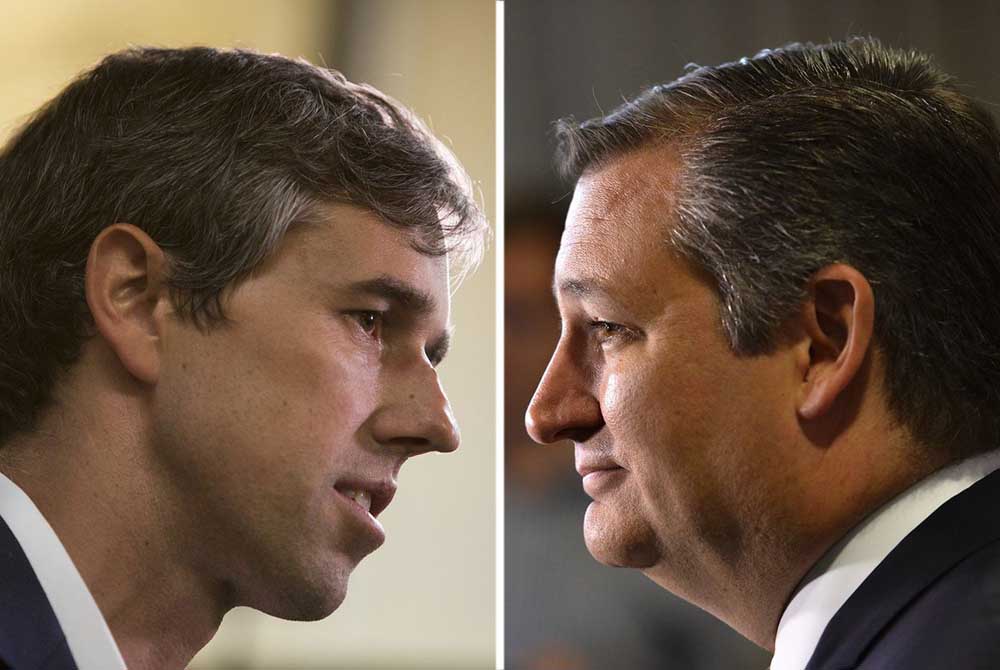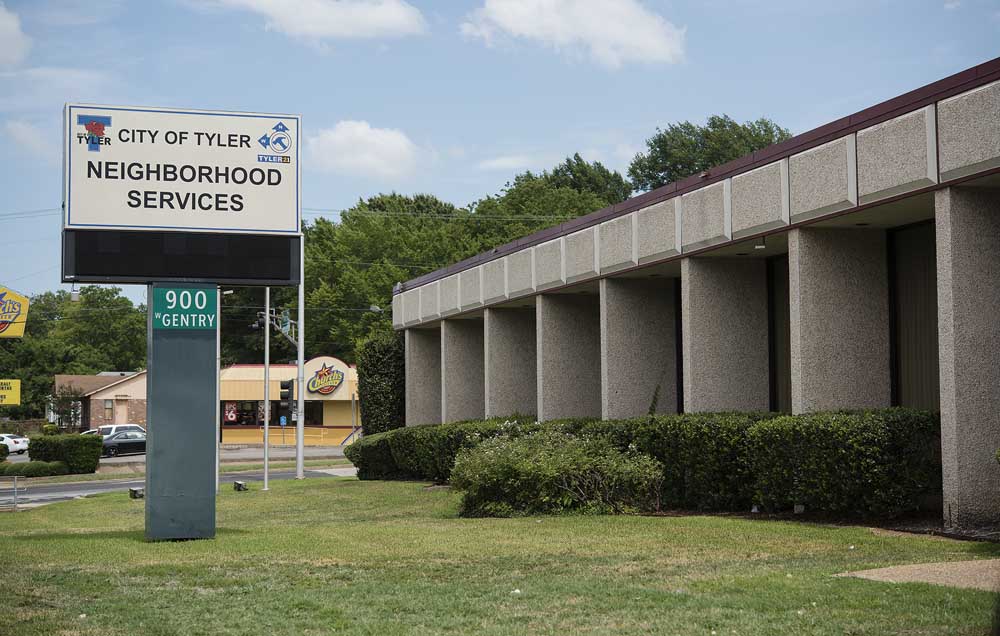UT Tyler poll shows Ted Cruz leading Beto O’Rourke by 4.3 points
Published 6:30 pm Tuesday, October 30, 2018

- U.S. Rep. Beto O'Rourke, D-El Paso (left), and U.S. Sen. Ted Cruz. (The Texas Triune)
A new poll shows incumbent U.S. Sen. Ted Cruz with a 4.3-point lead over Rep. Beto O’Rourke among registered voters.
Cruz, a Republican, received support from 46.5 percent of registered voters in the poll, while O’Rourke, a Democrat, received support from 42.2 percent of registered voters. Another 7.7 percent said they were not sure, while 3.5 percent said they would vote for someone else.
The UT Tyler Polling Center conducted the poll among registered voters in Texas between Oct. 15 and 28. The poll used a combination of responses from landlines, cellphones and an online survey. The margin of error is 3.03 percent.
The poll reached 400 people by phone and 633 online. The majority of the responses, or 827 of them, came after early voting started on Oct. 22. The results were weighted by gender, age, race and education level to provide an accurate picture of Texas registered voters.
When narrowed to responses from the 905 likely voters in the sample, Cruz leads O’Rourke 47 percent to 43.4 percent, with 5.7 percent “not sure” and 3.9 percent choosing “other.” When narrowed further to exclude respondents who are “not sure,” Cruz leads O’Rourke 49.8 percent to 46.0 percent, with 4.2 percent choosing “other.”
Respondents who approved of the job President Donald Trump is doing overwhelmingly sided with Cruz in the Senate race, 393 to 32, while respondents who disagreed with Trump’s job performance went for O’Rourke by a margin of 378 to 50.
Ken Wink, the associate dean of the UT Tyler College of Arts and Sciences, said immigration is “far and away” the top issue among Cruz voters, while O’Rourke supporters chose health care as one of the top three issues. He said the way the immigration debate is working out nationally is to Cruz’s advantage.
For U.S. House races, which vary statewide, respondents were asked whether they would vote for the Republican or Democratic candidate in their district. More said they would support the Republican candidate, 45.5 percent, than the Democratic candidate, 39.3 percent. Another 12.1 percent were “not sure” and 3.1 percent said “other.”
In the governor’s race, incumbent Republican Greg Abbott received 52.6 percent support, compared with 32.2 percent for Democratic challenger Lupe Valdez. Another 10.3 percent were undecided, and 4.9 percent chose “other.”
In the lieutenant governor’s race, incumbent Republican Dan Patrick received 44.5 percent support, compared with 32.4 percent for Democratic challenger Mike Collier. Another 17.4 percent were undecided, and 6 percent chose “other.”
The poll also asked questions about social issues such as immigration and race.
A majority of respondents, 57.4 percent, said they would support a guest-worker program in the United States. Another 19.4 percent would disagree with such a program, while 19.5 percent had a neutral position, and 3.7 percent chose “don’t know.”
A larger majority of respondents, 63.3 percent, said they support improved security along the U.S.-Mexico border. Only 15.6 percent opposed, while 19.2 percent had a neutral position, and 2 percent chose “don’t know.”
Wink said the school has asked about guest-worker programs in the past and did not want to limit its immigration questions in the poll to asking about border security.
“We just thought there was more than one angle on that, that it was a multifaceted issue,” he said.
On race issues, respondents were mostly even on whether they agreed or disagreed with the statement, “Generations of slavery and discrimination have created conditions that make it difficult for blacks to work their way out of the lower class.” There were 40.8 percent who disagreed, and 37 percent who agreed. Another 19.2 percent were neutral, and 2 percent responded “don’t know.”
A majority, or 51.2 percent, agreed with the statement, “Irish, Italians, Jewish and many other minorities overcame prejudice and worked their way up. Blacks should do the same without any special favors.” Another 23.2 percent disagreed, while 23.3 percent had a neutral position and 2.3 percent responded “don’t know.”
Wink also pointed to results about Texans’ party affiliations. He said more voters tended to identify as Republicans, and many who called themselves independents leaned Democrat. “The Democrats probably have some need for some organizational work in the state, frankly,” he said.
Wink said the Department of Political Science and History plans to use the information from the poll to do further research on Texas politics in the weeks to come. He said he is particularly interested in how religious affiliations affect voter preferences.
Additional information from UT Tyler’s poll is available in the department’s notes, published at TylerPaper.com.
TWITTER and INSTAGRAM: @_erinmansfield
A previous version of this story used data that had not been fully weighted. The numbers were updated at 8:30 p.m. on Tuesday.






